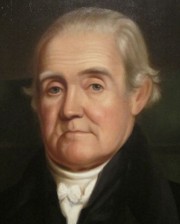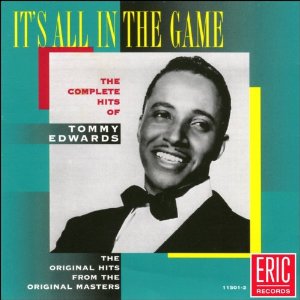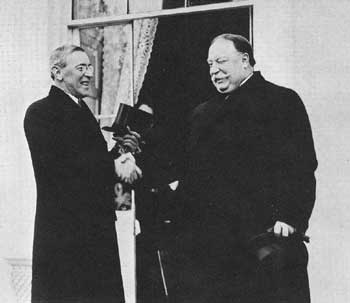Books: “Words from the White House”
March 20, 2013
When we were watching episodes of Downton Abbey on a DVD, we turned on the English subtitles, because we had trouble understanding a couple of the actors — particularly Rob James-Collier as Thomas Barrow and Sophie McShera as Daisy Mason.
It turned out that while some of our difficulty with the dialogue had to do with the one actor’s mumbling and the other one’s accent, some of it also had to do with the vocabulary itself — British terms that we did not know.
Most of us are familiar with terms like “lorry,” “loo,” and “lift,” but we saw others in the captions that we had never heard before.
It was to be expected that the English used in Britain and the English used in the United States would evolve differently, but I learned recently that that didn’t happen only over time but was done deliberately, on our side of the ocean, soon after the American Revolution.
That’s what Paul Dickson reports in his book Words from the White House, which is a compilation of words and phrases that either were either coined or made popular by presidents and other prominent Americans.
According to Dickson, an 18th century sentiment shared by Thomas Jefferson and Noah Webster, was that Americans had to craft for themselves a language that was distinct from the “king’s English.”
Webster was so confident that this goal could be achieved that he wrote in 1806 that “In fifty years from this time, the American-English will be spoken by more people than all the other dialects of the language.”
Part of the process by which language evolves is “neologizing” — that is, inventing words or phrases from whole cloth.
Dickson writes that the word “neologize” was itself neologized by Jefferson in 1813 in a letter to John Adams.
So Theodore Roosevelt, who — for my money — is disproportionately represented in this book, was neologizing when he invented the term “pussyfooter,” and his distant cousin FDR was doing the same when he created the useful word “iffy.”
Some presidents have been accused of using non-standard terms, not because they were being inventive but because they didn’t know any better.
In this regard, for instance, Dickson mentions Warren G. Harding and George W. Bush.
Harding has often been ridiculed for his 1920 campaign promise of a “return to normalcy,” but Dickson points out that the word “normalcy” had been already in use in several fields, including mathematics.
Harding’s innovation was to give the term a political meaning — and, the author reminds us, it worked.
The second Bush — who could be hard on English — was kidded mercilessly for his used of the term “decider” which he applied to himself when the press asked him about calls for the resignation of Defense Secretary Donald Rumsfeld (“I’m the decider, and I decide what’s best.”) Dickson gives Bush credit for coining this word, but apparently the author didn’t check a dictionary: that word was around before George Bush was president, meaning exactly what he used it to mean.
“We never repent of having eaten too little” — Thomas Jefferson
August 17, 2011
I caught a few minutes of Ann Coulter’s appearance on one of the Sunday talk shows this week, and found that by not tuning in earlier I had missed hearing her reasons for promoting Chris Christie as a Republican presidential candidate.
Apparently, it wasn’t a half-hearted endorsement; I heard her refer to the governor as “my first love.”
Coulter is not the first person to make this case. Christie is a controversial figure in terms of his public policy and his style, but he seems to be developing a following around the country.
Still this kind of talk has an unfamiliar ring to us in New Jersey because, except for Bill Bradley’s failed attempt to win the Democratic nomination in 2000, making presidents has not been our thing in recent decades.
Even the two we contributed in the distant past had imperfect credentials. Woodrow Wilson wasn’t born in New Jersey, and Grover Cleveland – who was born here and is buried here – spent most of his life someplace else.
Christie hasn’t lent much credibility to the idea that he would be a willing candidate, but if he should run, one thing that has come up already and surely would get a lot of attention in the news coverage – and late-night commentaries – would be his girth.
Christie himself has often acknowledged that his weight is a result of his eating habits and that it is unhealthy.
In the world we live in, it is also a potential liability from the aesthetic point of view.
There already have been stories speculating as to whether a man of Christie’s size can be elected president – kind of a diss on the intelligence of the body politic.
In fact, that question has already been answered twice by the elections of William Howard Taft and Grover Cleveland.
Taft, the largest president so far, was six feet tall and weighed more than 330 pounds when he was elected president in 1908. After Taft had left the presidency, he lost about 80 pounds, which lowered his blood pressure and improved his ability to sleep.
Cleveland – whose weight isn’t mentioned as frequently as Taft’s – was five-feet-eleven and weighed between 235 and 280 pounds. His weight is noticeable in photographs from his presidential years, but it apparently didn’t trouble the citizens who gave him the majority of the popular vote three times in a row – the only president besides Franklin Roosevelt to achieve that. (In 1888, Benjamin Harrison won the majority of the electoral votes.)
The criticism directed at political candidates in the 19th and early 20th centuries could be as cruel, in its own way, as the attacks that are leveled today. Cartoonists gleefully exploited the proportions of both Cleveland and Taft, and no one’s physical appearance attracted more public ridicule than that of Abraham Lincoln.
But the pervasive and relentless nature of media in our age add a lot of destructive power to negative messages.
Some voters might be legitimately concerned about the life-threatening nature of Christie’s weight, but the web of electronic communications has given people the idea that they can – and should – say virtually anything that comes into their heads. The comments posted on web sites suggest that many writers think it’s a virtue to be as coarse and demeaning as they can.
I noticed, for instance, that folks who frequent a Facebook page for graduates of my high school alma mater, say some pretty awful things about former teachers and classmates – undaunted by the fact that most of their targets are still living and could easily read these messages.
For his own well-being – particularly if he takes on the rigors of a presidential campaign and a term or two in the White House – Christie ought to do something about his weight.
Besides prolonging his life, it would spare him and his family the meanness that has become the lingua franca of smart alecs in the digital age.









